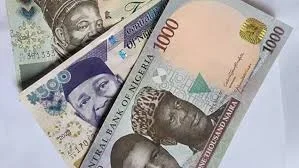
In a recent report titled "Africa's Pulse," the World Bank has highlighted the sharp depreciation of the Nigerian Naira as one of the key economic challenges facing the African region. According to the report, the Naira has weakened by nearly 40 percent against the US dollar since a mid-June devaluation, making it one of the worst-performing currencies in Africa.
The World Bank attributed the Naira's depreciation to the central bank's decision to remove trading restrictions on the official market, allowing the currency to float freely. This move was aimed at unifying and liberalizing exchange rates. However, the Naira's value declined significantly as a result.
The report also noted that other African currencies, such as the Angolan Kwanza, South Sudanese Pound, and Burundian Franc, have also experienced substantial losses in 2023. These currency depreciations are partly driven by factors like low oil prices and high debt payments.
One concerning aspect highlighted in the report is the widening gap between parallel and official exchange rates, contributing to inflationary pressures. While the unification of exchange rates in June 2023 briefly closed this gap, resistance to the Naira's depreciation and limited foreign exchange supply at the official window have led to the reemergence of parallel market premiums.
The World Bank predicts that Nigeria's economic growth will decelerate from 3.3 percent in 2022 to 2.9 percent in 2023. Policy actions, including the removal of fuel subsidies and exchange rate unification, have contributed to this slowdown, impacting business confidence and rising input costs.
The report concludes that while these reforms aim to improve fiscal and external accounts, they may have short-term inflationary effects, potentially eroding the purchasing power of households and affecting economic activity in Nigeria.
These findings underscore the economic challenges facing Nigeria and the need for policy adjustments to stabilize the currency and promote sustainable economic growth




